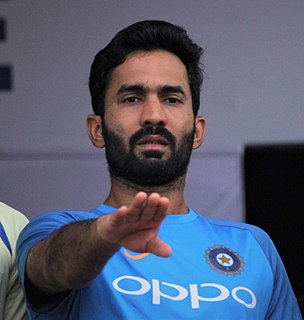A Quote by Jim Mullen
Sometimes you get more creativity when you're in a box than when you can do anything. In really difficult situations, sometimes, you get the most interesting thinking.
Related Quotes
I try to maintain an even tempo in all the games. Sometimes you play well and sometimes you get out. When you get out, you feel it is a wrong shot. Most players in tough situations play shots that could be out, but over time you refine that and give yourself the best chance of performing, the more you play in such situations.
If there's an article about sexual assault, if there's a video about feminism on YouTube, you're going to get the most horrible, disgusting comments ever. And sometimes the comments are pornographic, and sometimes the comments are really harassing. So I think that it's kind of a difficult place for women to write sometimes.
To be sure, not all moments are equally fleeting. Some moments last longer than others. And certain events do reoccur more than once and even recur repeatedly. Sometimes you do get more than one chance. Sometimes you don't. It helps to know how long a window of opportunity you have and if you'll get another chance.
People get sick and sometimes they get better and sometimes they don't. And it doesn't matter if the sickness is cancer or if it's depression. Sometimes the drugs work and sometimes they don't. Sometimes the drugs work for a while and then they stop. Sometimes the alternative stuff works and sometimes it doesn't. And sometimes you wonder if no outside interference makes any difference at all; if an illness is like a storm, if it simply has to run its course and, at the end of it, depending on how robust you are, you will be alive. Or you will be dead.
Just in time for the renewal of the war debate in Congress, the University of Chicago Press has released The U.S. Army / Marine Corps Counterinsurgency Field Manual. . . . It's a nifty volume, not only because it gives you a sense of what our most highly regarded military theorists are thinking but because sometimes what they're thinking is the last thing you'd expect. Especially interesting is a section called 'Paradoxes of Counterinsurgency Operations,' which tells us: 'Sometimes doing nothing is the best reaction' and 'Sometimes, the more force is used, the less effective it is.'




































